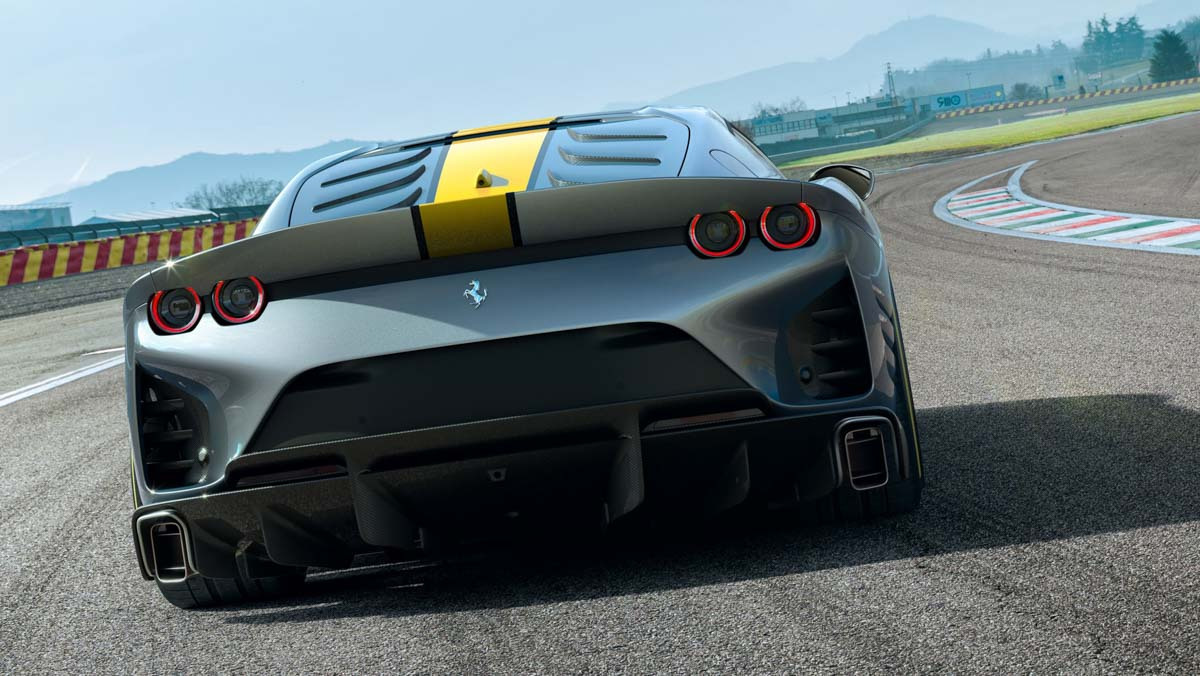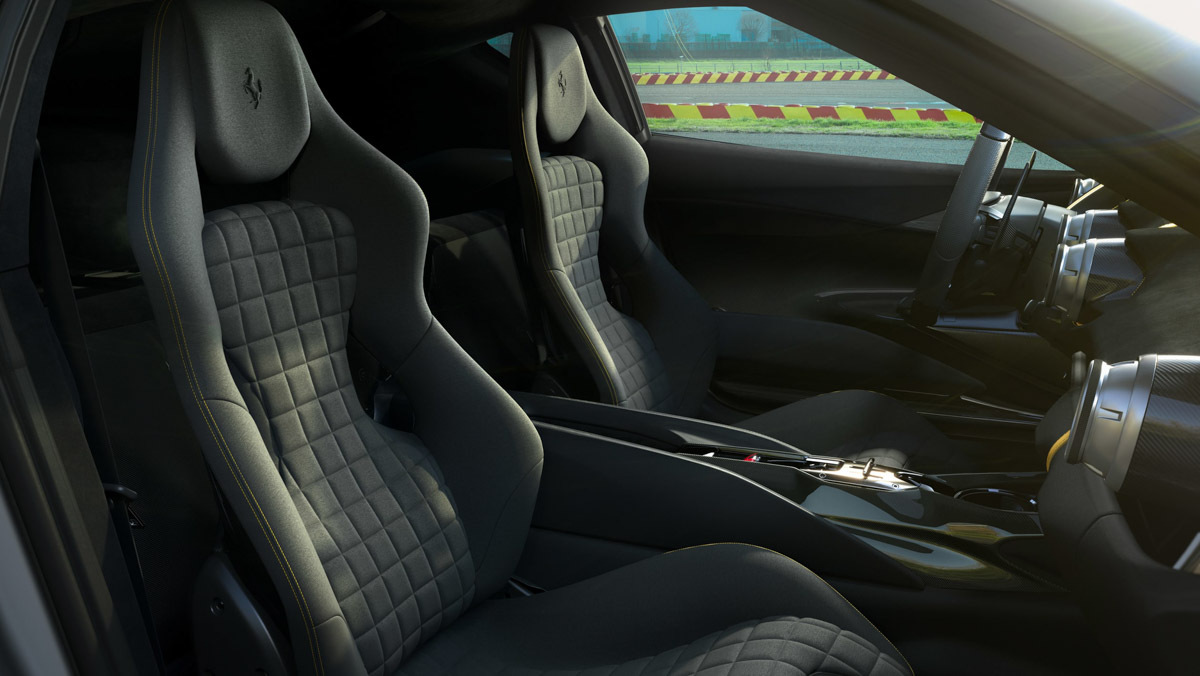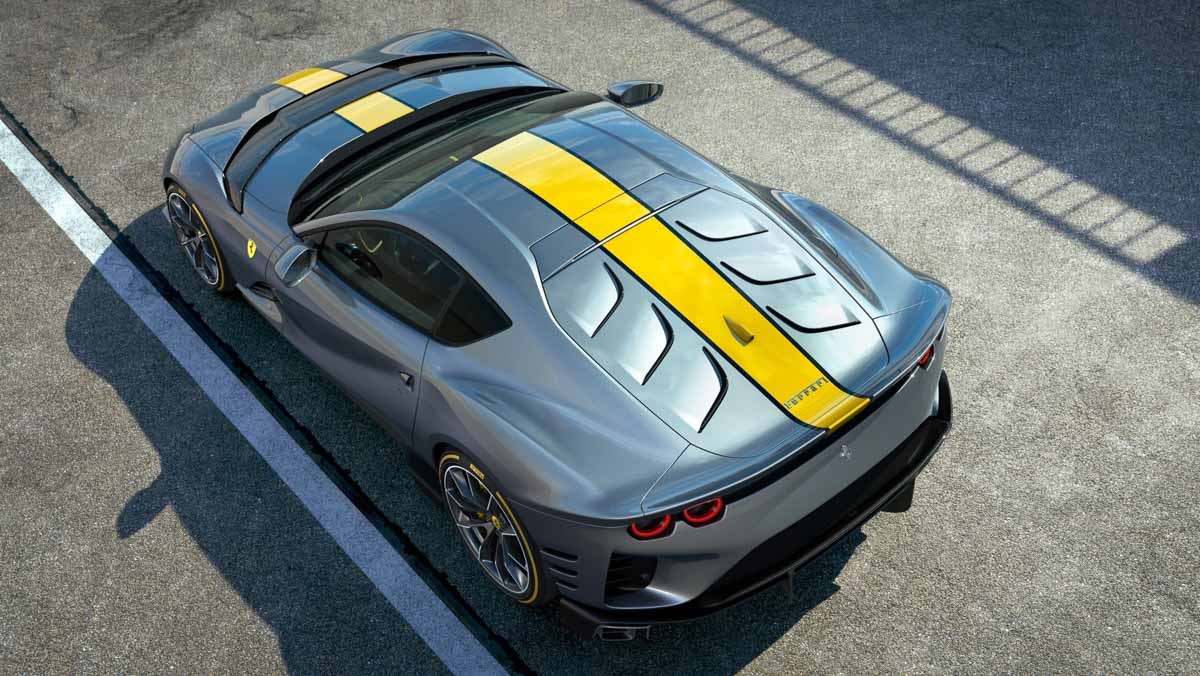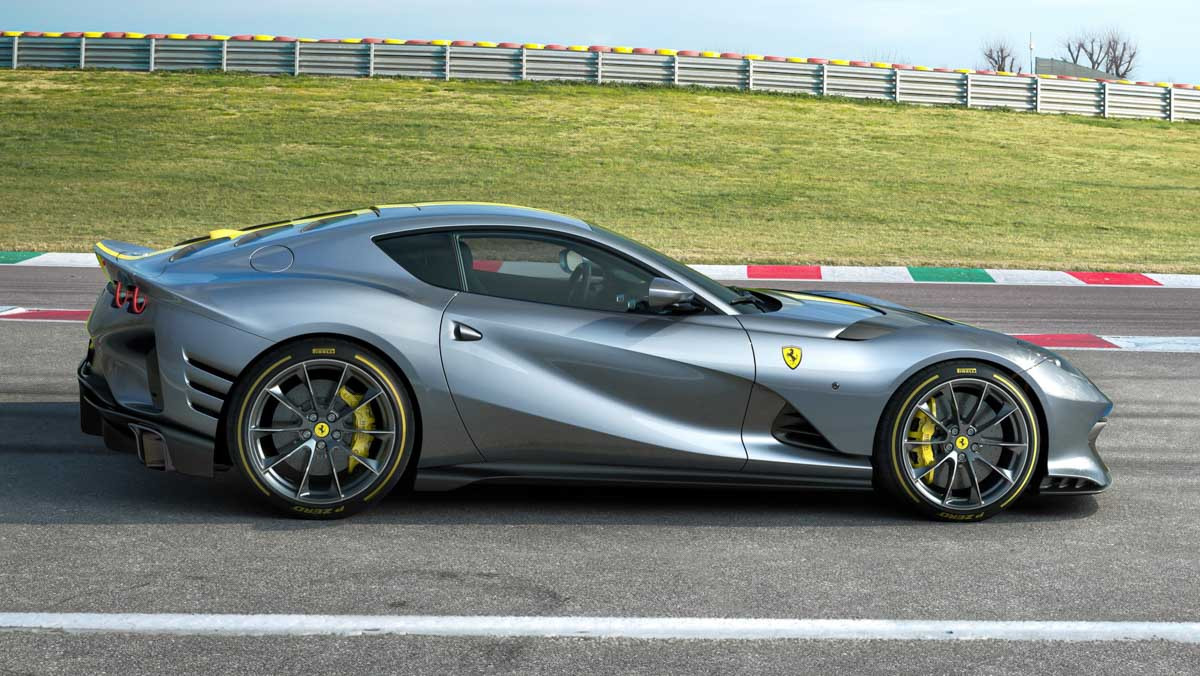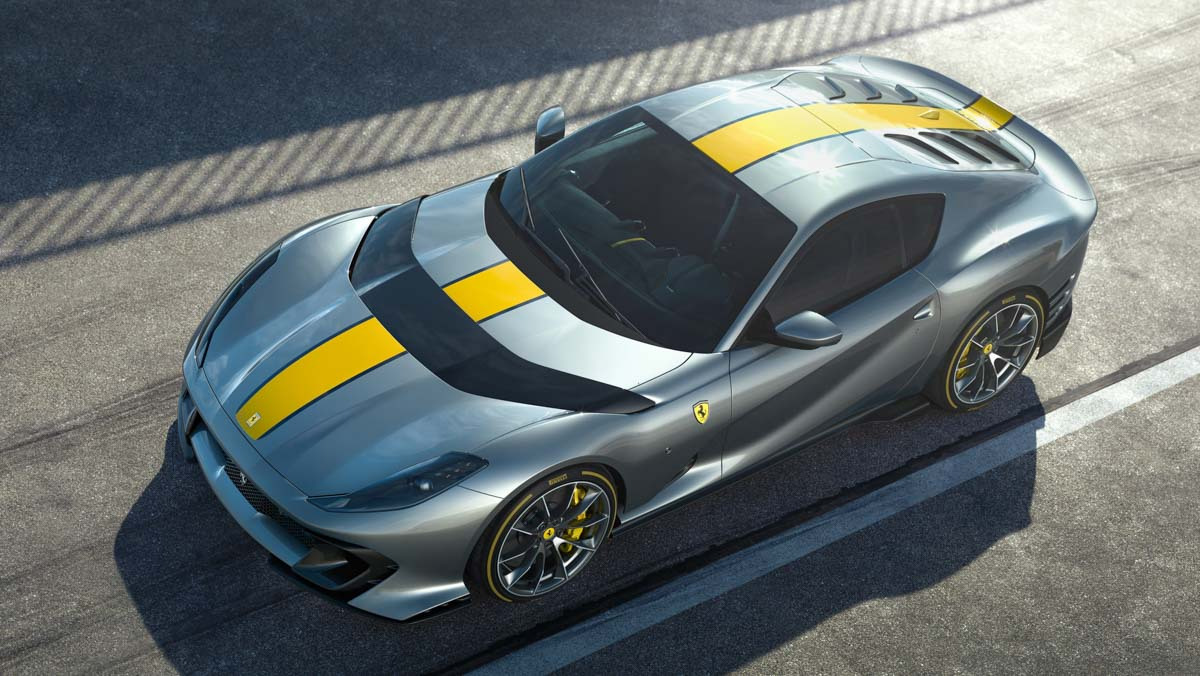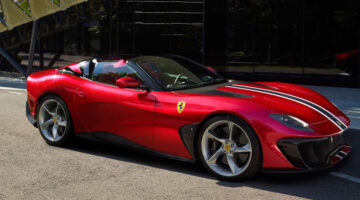Ferrari’s new limited-run berlinetta, the 812 Competizione, to follow in footsteps of the F12 TDF and 599 GTO
Following on from the 599 GTO and F12 TDF, Ferrari has revealed what could well be its most potent and extreme V12 berlinetta ever. The as-yet-unnamed special edition of the 812 Superfast will be given its official moniker on May 5th alongside a more indepth technical reveal.
From the limited information Ferrari has so far released, we can tell you that this front-engined V12 Ferrari will be the most powerful naturally-aspirated Ferrari yet, with a quoted 818bhp from the venerable 6496cc F140 V12 – an uplift of 41bhp compared to the 812 Superfast. That power figure is difficult enough to digest anyway, but even more astounding is the 9500rpm its V12 revs to in order to reach that peak output, a full 1000rpm more than the standard 812.
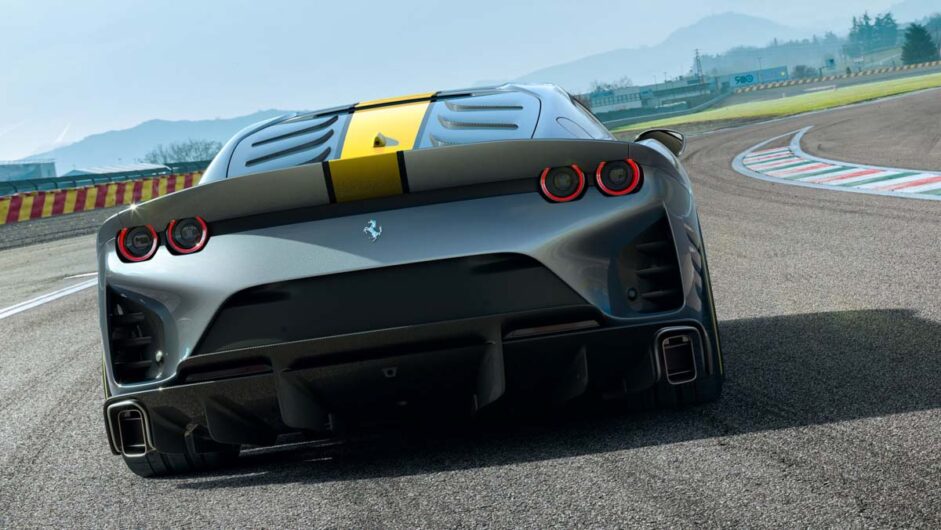
In order to facilitate the higher engine speeds and thus liberate this extra horsepower, Ferrari has gone deep into the engine’s internals, comprehensively updating what is already the most powerful naturally aspirated engine in the world. While Ferrari has yet to go into specific details, it has confirmed that elements like the valvetrain and exhaust systems have been fundamentally redesigned. Performance figures have yet to be released, but we expect a subtle drop in the standard 812’s 2.9sec 0-100kph time, and a similar top speed of around 340kph.
Following the template of its predecessors, the new limited edition V12 model will also have a small drop in weight compared to the 812 Superfast, which currently sits at 1744kg. Weight has been shed through the extended application of carbonfibre body panels, resulting in a completely bespoke body, albeit with shared fundamental proportions and the same aluminium spaceframe chassis.
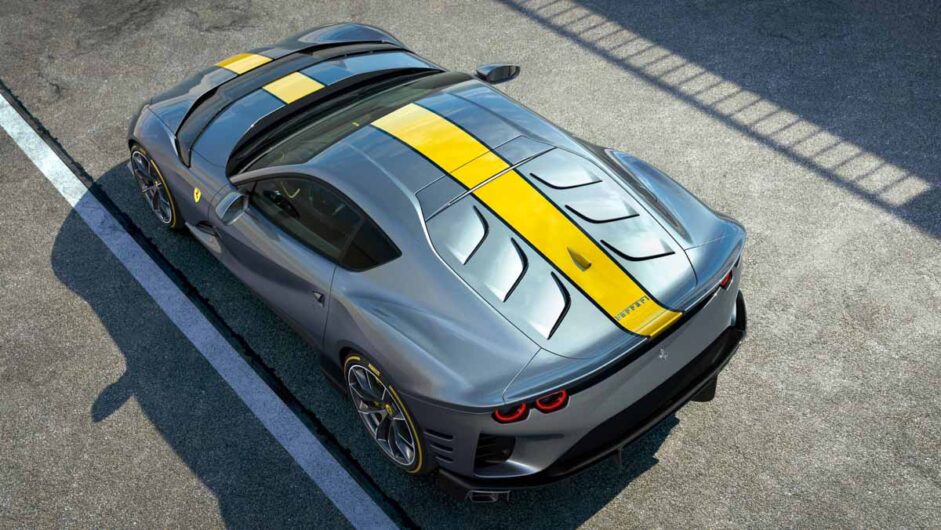
The new bodywork has been designed by Ferrari’s in-house Centro Stile, with an aesthetic emphasis on airflow and finer aero management. The nose, for instance, has a larger single opening in the front bumper, with two outer cooling ducts that float within the main grille. The splitter is both deeper and wider than the 812, edged with vaned air deflectors that separate the air from the front wheel arches. Ferrari has also graphically split the bonnet in two with an arching carbonfibre wing that extends out to meet each front quarter panel, leaving subtle slip gaps that also vent the engine bay.
The special edition is largely similar to the standard 812 in profile, but the subtle opening by the rear quarter window has been scrapped in favour of a cleaner rear quarter panel.
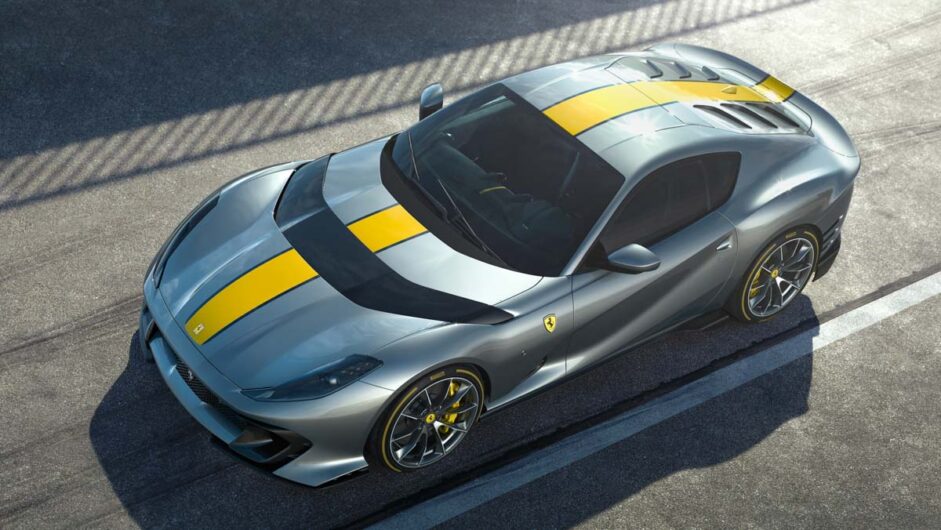
The rear end aspect, by contrast, is completely new, and dominated by a fixed ducktail and triple vent motif that reference Ferrari’s most iconic of berlinettas – the 250 GTO. The rear bumper has also been completely redesigned, with a vast full-width rear diffuser that integrates two oblong exhaust outlets at its outer edges.
The tail lights feature the same twin-roundel design as the standard 812, but now sit within a carbonfibre moulding that slims their appearance, ever so slightly obstructing their upper edges to create a different lighting signature at night. The rear glass has also been replaced with a carbonfibre panel, with Ferrari utilising the same virtual rear-view mirror technology, via a small rear-pointed camera, as its SF90 supercar.
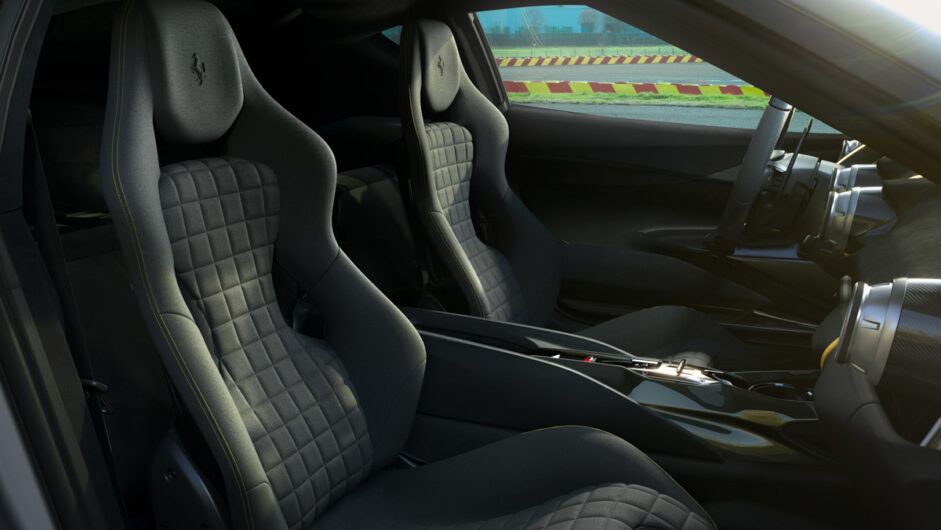
Inside, the basic dash layout has been largely kept intact from the 812, but bespoke to this special edition is a new central tunnel, incorporating the same H-gate gear selector setup as found in Ferrari’s Roma and SF90. Final trim elements will probably be up to the customer’s discretion, but given the emphasis on weight reduction, bare carbonfibre and Alcantara are likely to be specified by most.
No pricing or production numbers have been revealed as yet, but expect a big hike over the standard 812 Superfast’s $362,717 price point, if you can get your hands on one at all. With Ferrari deep in the midst of a substantial revamp of its historically stable model lineup, this special edition could well prove to be a swansong for the Ferrari’s two-seater front-engined V12 Berlinetta. Whether the superb F140 engine will need to inherit hybridisation to be utilised in Ferrari’s next generation remains to be seen, but for now we can revel in the fact that Ferrari is still able to produce a V12 engine that revs to 9500rpm at all.
This article originally appeared at evo.co.uk
Copyright © evo UK, Dennis Publishing


